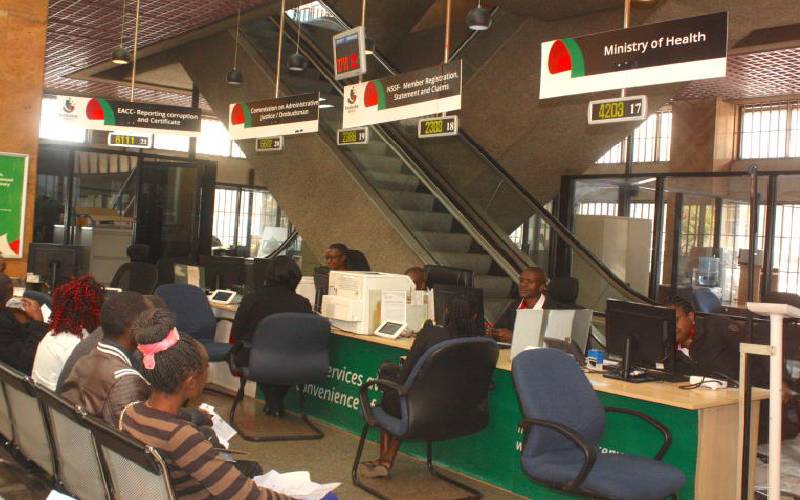×
The Standard e-Paper
Home To Bold Columnists

A section of Huduma Centre in Nairobi on July 16, 2018.[David Njaaga,Standard]
The move by the Government to set up a central digital database with unique Huduma numbers for every Kenyan has raised concerns about data protection and mass surveillance.